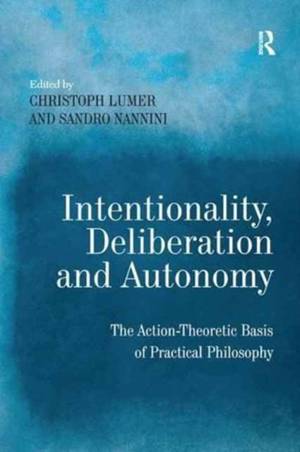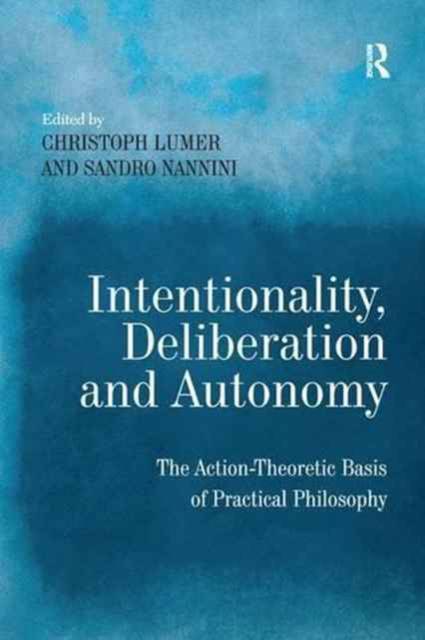
- Afhalen na 1 uur in een winkel met voorraad
- Gratis thuislevering in België vanaf € 30
- Ruim aanbod met 7 miljoen producten
- Afhalen na 1 uur in een winkel met voorraad
- Gratis thuislevering in België vanaf € 30
- Ruim aanbod met 7 miljoen producten
Zoeken
Intentionality, Deliberation and Autonomy
The Action-Theoretic Basis of Practical Philosophy
Sandro Nannini
Paperback | Engels
€ 112,95
+ 225 punten
Omschrijving
Many important thinkers in the philosophical tradition, like Aristotle or Hume, have used an explicit theory of action as the basis of their respective normative theories of practical rationality and morality. The idea behind this architecture of theories is that action theory can inform us about the origin, bonds, reach and limits of practical reason. The aim of this book is to revive this direct connection between action theory and practical philosophy, in particular to provide systematic action-theoretical underpinnings for the discussion about the normative structure of practical reason. This book brings together a collection of specially commissioned essays from internationally prestigious scholars in the field and represents the state of the art in contemporary philosophy of action. The book is divided into three parts: i. conceptual work about what actions, intentions and intentional actions are; ii. empirical theory of practical deliberation; and iii.theories about the action theoretic features of autonomy. The volume significantly advances these three lines of research and offers important new contributions to each of them.
Specificaties
Betrokkenen
- Auteur(s):
- Uitgeverij:
Inhoud
- Aantal bladzijden:
- 328
- Taal:
- Engels
Eigenschappen
- Productcode (EAN):
- 9781138249288
- Verschijningsdatum:
- 9/09/2016
- Uitvoering:
- Paperback
- Formaat:
- Trade paperback (VS)
- Afmetingen:
- 156 mm x 234 mm
- Gewicht:
- 458 g

Alleen bij Standaard Boekhandel
+ 225 punten op je klantenkaart van Standaard Boekhandel
Beoordelingen
We publiceren alleen reviews die voldoen aan de voorwaarden voor reviews. Bekijk onze voorwaarden voor reviews.







